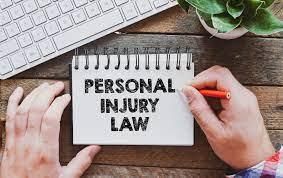Personal injury claims are incredibly serious matters, so you want to make sure that you get the compensation you deserve for all of your troubles. If someone else’s negligence or carelessness led to your personal injury, then you’re owed financial compensation to help cover your medical bills, lost wages and emotional distress. However, if you want to make sure that you’re truly getting the most out of your claim, then it’s important to follow these steps to prepare your claim correctly and maximize your odds of success.
Medical Evidence Needed to Build a Strong Claim
These days, getting into an accident is more common than ever. To ensure you receive just compensation for your injuries, it’s important that you gather medical evidence following any car accident or slip and fall incident. If you’re unsure how to go about collecting such evidence, read on for some tips. How Medical Evidence Can Help Your Case: The type of injury sustained by a victim can play a significant role in determining what sort of compensation they should be entitled to. As such, lawyers rely heavily on medical evidence when building their cases—evidence which must be obtained from qualified doctors and/or specialists who are familiar with specific types of injury.
Scene of the Accident Evidence Helps Build a Strong Claim
The area where your accident occurred is important. It can help you build a strong case if you have witnesses and reliable evidence from before, during, and after your accident. For example, pictures of skid marks and debris at an intersection can be used as evidence against someone who hit you with their car. If you’re in an accident with one of these vehicles, don’t pick up any pieces of paper or other items that are scattered around; they may become important later on.
As per the law, evidence related to the accident itself is key for building a strong case. Be mindful of your health and start gathering evidence as soon as possible. More importantly, recollect details of the accident, write them down in as much detail as possible, and then every day for the following weeks, record how the injuries have adversely impacted your life.
Do Not Talk About the Accident or Lawsuit in Person or on Social Media
Once you realize you’ve been injured and believe someone else was at fault, it’s important to keep your mouth shut about it. In many cases, speaking about or sharing any information related to an accident or lawsuit is referred to as tipping off witnesses. This means that even if you don’t think what happened was serious enough to warrant a lawsuit, talking about it could ruin your chances of ever receiving compensation for injuries sustained in an accident. As such, if you have questions or concerns after an accident, speak with a personal injury lawyer before discussing anything with anyone else involved in the incident.






 StableDiffusion
StableDiffusion Photo by
Photo by  Photo by
Photo by 
 full parking
StableDiffusion
full parking
StableDiffusion





